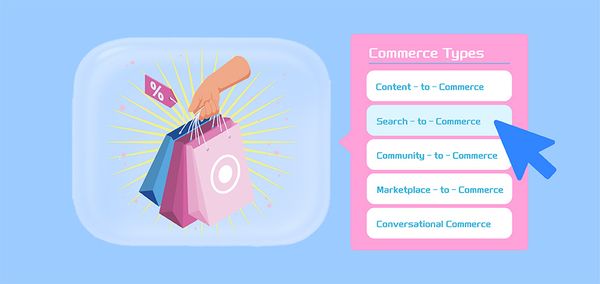How to Start Your Own Content Marketing Business: A Step-By-Step Guide

Starting on a content marketing adventure is about getting cozy with your audience—diving deep into what makes them tick, their desires, struggles, and everything in between. It’s about crafting a thoughtful plan to share content that strikes a chord with them.
Imagine spending less yet reaching out more effectively than the old-school methods. That’s content marketing for you—it’s like having a magic wand in the digital realm, drawing in potential fans and keeping the loyal ones close.
In the following detailed guide, we'll share the steps to kick-start your content marketing journey with ease.
What Exactly Is Content Marketing
Think of content marketing as your way of throwing a tea party for friends who haven’t yet met you. You’re putting out all these delightful treats—blog posts, videos, social media snippets, slideshows, podcasts, or even print magazines. The goal? To charm and educate rather than push a sales pitch.
This array of content aims to enlighten, teach, and engage your guests, gently guiding them from being curious onlookers to becoming loyal patrons of your offerings.
By consistently serving valuable insights, content marketing does more than fill space. It positions you as the go-to expert in your field, builds a bridge of trust with your audience, and paves the way for more meaningful engagements and, ultimately, sales.
What Are the Advantages of Content Marketing

Content marketing opens up many business opportunities, aiming to captivate customers who already show interest in what they offer. Through the diligent crafting and sharing of insightful content, businesses can enhance their brand visibility and emerge as leading voices within their respective fields.
This strategy offers a unique platform for interaction with the intended audience by serving them content that is informative and deeply resonates with their needs and interests. Such engagement fosters a sense of trust and loyalty, significantly boosting the chances of transforming readers into devoted customers.
Integrating search engine optimization with content marketing efforts can significantly boost a website's presence online, drawing in a larger pool of leads and potential clients. Compared to the more traditional advertising avenues, content marketing is a remarkably cost-efficient approach to connecting with and engaging a target audience.
Moreover, unlike conventional advertising strategies that quickly fade into obscurity, content marketing stands the test of time. It creates a treasure trove of evergreen content that continually appeals to your audience, ensuring enduring benefits.
What Are the Various Content Types
Content marketing offers various formats, each with its unique ability to connect and engage. Rather than attempting to master every possible type, focusing on those that resonate most deeply with your intended audience is wise. Let's delve into the most commonly embraced forms of content.
- Written Content: This encompasses everything from in-depth articles and insightful blog posts to timely news stories.
- Visual Content: Here, images speak louder than words through compelling charts, infographics, and other visual aids that weave narratives or clarify complex ideas.
- Video Content: A dynamic medium that spans educational tutorials, webinars, live broadcasts, and captivating animations that guide viewers through stories and concepts.
- Audio Content: This category invites audiences to listen and immerse themselves in podcasts, musical compositions, and sound snippets that entertain or inform.
- Interactive Content: Engaging and participatory, this type of content—be it quizzes, surveys, polls, or games—invites active involvement from its audience.
- Social Media Content: The lifeblood of social platforms includes everything from posts and tweets to updates and shares that spark conversations and connections.
- User-Generated Content: A testament to audience engagement, this encompasses reviews, comments, forum discussions, and other forms of content crafted by users.
How Do You Start With the Process
If you're at the starting line of your content marketing journey, even as a novice, here are eight actionable steps to set you on the path to success.
1. Getting to Know Your Audience
Going on a content marketing journey starts with a heartfelt understanding of who you're trying to reach. Imagine walking a mile in the shoes of your ideal customer, feeling their frustrations and dreams, and understanding how your content can light up their path. This group of individuals is the very heart of your content marketing endeavors.
By diving deep into their world and discovering their needs, interests, and challenges, content creators can craft messages that resonate deeply and meaningfully. It's about engaging in a thoughtful exploration of their lives—what makes them tick, their daily hurdles, and their aspirations. This involves a blend of empathy and analysis, from piecing together their demographic profiles to mapping out their emotional journey before deciding to purchase.
By painting a detailed portrait of these people, from their age to their passions, marketers can tailor content that feels like a personal letter, addressing each reader by name.
2. Charting Your Course
With a clear vision of who you're speaking to, the next step is to ponder the milestones of your content marketing voyage. What's the beacon guiding your way—is it boosting brand awareness, nurturing leads into blossoming opportunities, or steering conversations into conversions? Setting these goals is like plotting stars in the night sky, guiding your content strategy across the vast digital ocean. It's about knowing not just the 'what' but the 'why' behind each piece of content, ensuring every word, image, and video serves a purpose, moving you closer to your dreams.
Whether casting a wider net to capture more attention, seeding thoughts that grow into industry leadership, or paving digital pathways back to your website, each goal promises a journey worth taking. While the horizon may hold many ambitions, from climbing the ranks of search engines to forging stronger connections through backlinks, the key is choosing the right starting point.
After all, every epic tale begins with a single step, a clear direction, and an open heart.
3. Optting for a Content Style
In the vast landscape of content creation, there are many formats to choose from—blog posts, videos, infographics, and even physical magazines. It's like a buffet of options! Pick the one that vibes the most with your audience. Each format has its quirks, so do some digging to find the perfect match for your content and your peeps.
4. Diving into Topic Research
Now that the content style and personas are all sorted, it’s time to dig into what floats your audience's boat—topics! Pinpointing topics that resonate with your audience is key to crafting engaging and informative content. This positions your brand as a beacon of wisdom in your industry, and fosters trust with your audience.

|
Manage Multiple Stores In One Account Multiple Stores Management - Link and manage multiple stores on different platforms in one place |
Research is your trusty sidekick in the quest for killer content ideas. Keep an eye on your target market's search trends, peek into their social media chatter, and scope out the hot spots in your industry. Oh, and don’t forget to spy on your competitors—there’s wisdom to be gleaned from their content marketing endeavors.
5. Building a Content Calendar
Crafting an editorial calendar is like charting a course for content creators, providing a structured approach to planning and executing content strategies. Developing a content calendar helps maintain organization, ensures consistency across content, and aids in achieving set objectives. It's a best practice to map out content ahead of time and schedule it to maintain a steady stream of content.
When setting up a content calendar, identify the types of content to create and the topics to cover. Determine a realistic publishing frequency based on goals and available resources. Assign deadlines and responsibilities within the calendar to keep everyone aligned and ensure timely publication.
6. Creating Quality Content
While it might sound obvious, the significance of producing top-notch content must be considered in content marketing. Recognize competitors vying for the same audience, making quality content pivotal. Exceptional content establishes authority within an industry, and fosters trust with the audience.
However, generating quality content that resonates with the target audience entails more than just writing. Audiences expect content that is well-researched, factually accurate, and engaging. Ensure thorough research, fact-checking, and error-free content. Incorporate visuals like images and videos to enhance engagement and comprehension.
You must keep the content unique to ensure quality. What if turning a blind eye to uniqueness results in plagiarized content? You must analyze crafted content for plagiarism and take notice of doubtful sections to make necessary revisions.
7. Spreading the Word about Content
Getting the word out about your content is super important for its success. You need more than just making awesome content; you must ensure it reaches the right folks.
By spreading the word, you can reach more people, boost your brand, and show off your expertise in your field. There are many ways to do this, like using social media, sending emails, writing guest posts, and teaming up with influencers. Using these channels, you can connect with new audiences and send them to your website.
8. Checking How You're Doing
Checking how your content marketing is going is crucial to seeing if your strategy works. By keeping an eye on essential stats (like how many people are interacting with your content), you can figure out what's going well and what needs tweaking.
Metrics such as likes, shares, and comments on social media can show how much your audience is enjoying your content. And stats like how many people are visiting your site, how long they're sticking around, and how many are leaving right away can tell you if your content is hitting the mark and keeping folks interested.
Wrap-up
It's important to remember that the whole point of content marketing is connecting with people meaningfully. That means creating stuff that speaks to them, addresses their problems, and offers real solutions. You're on the right track when your content is helpful, informative, and genuinely useful.
But here's the kicker: effective content marketing takes more than good intentions. It requires some serious planning and execution. Staying in the loop with what's hot and what's not is crucial for success. So, take these tips to heart. They're your roadmap to getting started on the right foot with your content marketing journey, ensuring that what you put out there resonates with your audience.












 Company
Company
 Why Choose DSers
Why Choose DSers
 Blog
Blog
 Help Center
Help Center




 Live Chat
Live Chat